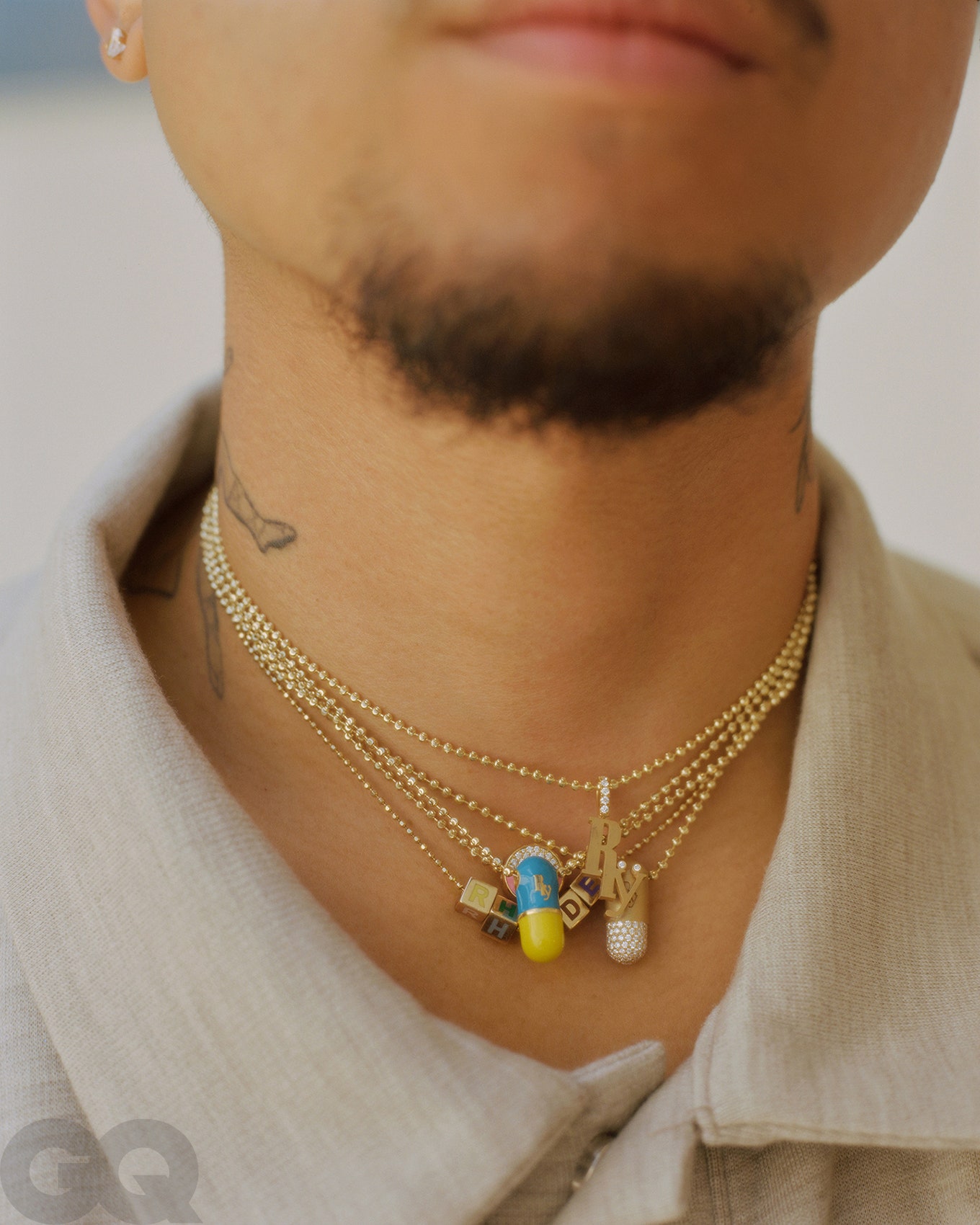Over chopped salads, it became clear that the qualities that attract Villaseñor to the Polo Lounge—a love of old-school principles and glamour, an abiding interest in the language of power and
access—are the same ones that helped him turn his five-year-old brand from a once flailing T-shirt-and-hoodie operation into a thriving label worn by Jay-Z, Justin Bieber, and an army of fashion-conscious young men who build and break brands in 2020.
This was not an obvious outcome for Rhuigi. The Villaseñors lived in Manila, where they were well placed. “My grandfather was part of the government,” Rhuigi said. And, uh, some other stuff: “I mean, he also ran, like, illegal businesses. Very Mafia guy.” It was Grandpa's idea that his progeny's names would start with the letters Rh. “I thought that was the coolest fucking thing ever,” Rhuigi said. He spent his childhood following his architect father around the globe—Saudi Arabia, Hong Kong, Thailand, Egypt. He was nine in 2001, when the family, spurred by regime change back in the Philippines, moved to the States, settling in a one-bedroom apartment in the L.A. suburb of Woodland Hills. The transition was tough. Villaseñor was afraid he'd be stranded between languages—his mastery of Tagalog halted by the move and his command of English hopelessly undermined by his late start. He laughs now (“What kind of kid has that fear?”), but it proved to be a foundational anxiety: He would spend the next two decades learning how to make himself heard.
In L.A., he molded himself into a kind of detective, obsessed with figuring out what other people liked. “It was about fitting in,” he explained, “understanding the language that the rest of my peers were speaking.” In Manila, he'd loved the Backstreet Boys, Disney movies, the Otis Redding records his parents played. His new peers loved Tupac, so he got into Tupac. Along the way, he was compiling a storehouse of cultural references—Kobe Bryant, his mom's beloved Cary Grant—that he's still drawing from today. “I never departed from what I loved,” he said. “I just needed to understand what other people [loved].”
But being an outsider meant being an outsider. He graduated at the top of his class in 2010, he said, but when “every kid is deciding whether they want to go to Harvard, I'm thinking to myself, My parents don't have the financial capabilities.” That the family was undocumented made things even more challenging.

